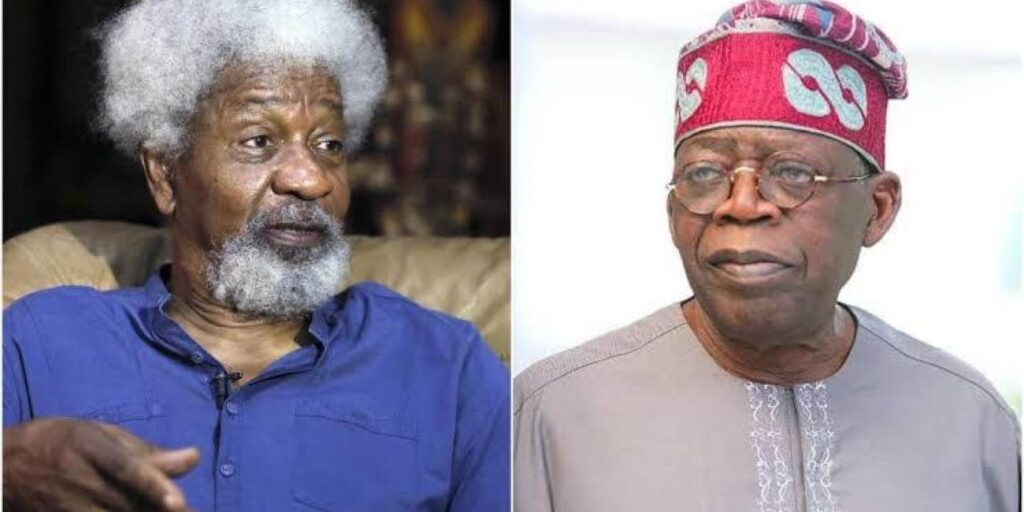Nobel Laureate, Prof Wole Soyinka, has urged President Bola Tinubu to order a thorough investigation into the unresolved assassinations of several notable Nigerians, including journalist Dele Giwa, former Attorney General Bola Ige, and pro-democracy icon Kudirat Abiola.
Soyinka made the call on Saturday during an interactive session with journalists in Lagos, warning that continued silence over these high-profile killings erodes public trust in the rule of law and democracy.
He noted that some Nigerians, including those in the diaspora, possess critical information that could help uncover the truth behind the murders that have remained unsolved decades after they were committed.
“These unresolved murders are stains on the conscience of the nation,” Soyinka said. “It is time we stop treating these matters as taboo. The truth is out there — people know what happened. The government must act.”
The playwright and human rights advocate made the remarks while reflecting on the June 12 Democracy Day celebrations, during which President Tinubu conferred national honours on 66 individuals for their roles in the struggle to restore democratic governance in Nigeria.
Soyinka, however, criticised what he described as “notable omissions” from the honours list, insisting that the recognition failed to fully acknowledge the sacrifices made by key figures in the pro-democracy movement.
Although he commended the general idea behind the national recognition, Soyinka declared that he would dedicate his own honour to the late Dr Beko Ransome-Kuti, whom he described as “a fearless defender of human rights and good governance who paid heavily for his convictions.”
The literary icon also lashed out at former military ruler, General Ibrahim Babangida, calling him “a general without an army,” in reference to the annulment of the historic June 12, 1993, presidential election widely believed to have been won by MKO Abiola.
“We know what Babangida did, who visited him, and those who supported the annulment — from military officers to royal fathers,” he stated. “It is his responsibility to tell Nigerians the full story.”
He warned against trivialising the June 12 struggle, stressing that many Nigerians were killed, tortured, or jailed under military rule for demanding a return to democratic governance.
“No one should ever downplay the sacrifices made. Many paid the ultimate price,” he said.
Soyinka’s comments come amid controversy over a claim that human rights activist Aisha Yesufu was among those recently honoured.
The Presidency has since denied conferring the award on her, clarifying that only 66 individuals were officially listed.
Among those posthumously recognised were Kudirat Abiola, Shehu Musa Yar’Adua, and Professor Humphrey Nwosu — the electoral umpire who oversaw the 1993 election.
In a move widely seen as symbolic, President Tinubu also granted a posthumous state pardon to environmental activist Ken Saro-Wiwa and the eight other members of the Ogoni Nine, nearly 30 years after they were executed under General Sani Abacha’s military regime.
Do you want to share a story with us? Do you want to advertise with us? Do you need publicity for a product, service, or event? Contact us on WhatsApp +2348183319097 Email: platformtimes@gmail.com
We are committed to impactful investigative journalism for human interest and social justice. Your donation will help us tell more stories. Kindly donate any amount HERE




